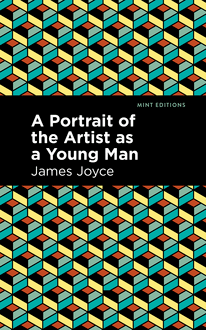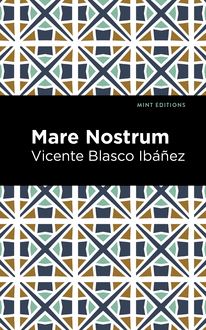-
 Univers
Univers
-
 Ebooks
Ebooks
-
 Livres audio
Livres audio
-
 Presse
Presse
-
 Podcasts
Podcasts
-
 BD
BD
-
 Documents
Documents
-
- Cours
- Révisions
- Ressources pédagogiques
- Sciences de l’éducation
- Manuels scolaires
- Langues
- Travaux de classe
- Annales de BEP
- Etudes supérieures
- Maternelle et primaire
- Fiches de lecture
- Orientation scolaire
- Méthodologie
- Corrigés de devoir
- Annales d’examens et concours
- Annales du bac
- Annales du brevet
- Rapports de stage
La lecture à portée de main
Vous pourrez modifier la taille du texte de cet ouvrage
Découvre YouScribe en t'inscrivant gratuitement
Je m'inscrisDécouvre YouScribe en t'inscrivant gratuitement
Je m'inscrisEn savoir plus
Vous pourrez modifier la taille du texte de cet ouvrage
En savoir plus

Description
Birthright (1922) is a novel by T.S. Stribling. Originally serialized in Century Magazine, the novel marked a major departure for Stribling, whose previous works had avoided serious themes altogether. Birthright was praised by black and white critics upon publication, and allowed Stribling to move his career away from genre fiction and into the pressing historical and social questions of his time. Peter is a young man with a powerful vision. After graduating from Harvard, he returns to his hometown of Hooker’s Bend, Tennessee, where he gains a new understanding of the prejudices and laws that shaped his upbringing. Born into a family of mixed racial heritage, Peter has long understood the necessity of passing, which allows him to avoid violence and to further his personal interests. Back in the South, however, he realizes that his experiences as a student have granted him an opportunity to change his community for the better. As he attempts to educate members of the local black and white communities, his hope for the future soon turns to doubt and disillusionment. Birthright, a triumphant and tragic story of race in America, was adapted by pioneering director Oscar Micheaux into a 1924 silent film and a 1939 talkie of the same name. With a beautifully designed cover and professionally typeset manuscript, this edition of T.S. Stribling’s Birthright is a classic of American literature reimagined for modern readers.
Sujets
Informations
| Publié par | Mint Editions |
| Date de parution | 21 mai 2021 |
| Nombre de lectures | 0 |
| EAN13 | 9781513287447 |
| Langue | English |
| Poids de l'ouvrage | 1 Mo |
Informations légales : prix de location à la page 0,0500€. Cette information est donnée uniquement à titre indicatif conformément à la législation en vigueur.
Extrait
Birthright
T.S. Stribling
Birthright was first published in 1922.
This edition published by Mint Editions 2021.
ISBN 9781513282428 | E-ISBN 9781513287447
Published by Mint Editions ®
minteditionbooks .com
Publishing Director: Jennifer Newens
Design & Production: Rachel Lopez Metzger
Project Manager: Micaela Clark
Typesetting: Westchester Publishing Services
C ONTENTS I II III IV V VI VII VIII IX X XI XII XIII XIV XV XVI XVII XVIII XIX
I
At Cairo, Illinois, the Pullman-car conductor asked Peter Siner to take his suitcase and traveling-bag and pass forward into the Jim Crow car. The request came as a sort of surprise to the negro. During Peter Siner’s four years in Harvard the segregation of black folk on Southern railroads had become blurred and reminiscent in his mind; now it was fetched back into the sharp distinction of the present instant. With a certain sense of strangeness, Siner picked up his bags, and saw his own form, in the car mirrors, walking down the length of the sleeper. He moved on through the dining-car, where a few hours before he had had dinner and talked with two white men, one an Oregon apple-grower, the other a Wisconsin paper-manufacturer. The Wisconsin man had furnished cigars, and the three had sat and smoked in the drawing-room, indeed, had discussed this very point; and now it was upon him.
At the door of the dining-car stood the porter of his Pullman, a negro like himself, and Peter mechanically gave him fifty cents. The porter accepted it silently, without offering the amenities of his whisk-broom and shoe-brush, and Peter passed on forward.
Beyond the dining-car and Pullmans stretched twelve day-coaches filled with less-opulent white travelers in all degrees of sleepiness and dishabille from having sat up all night. The thirteenth coach was the Jim Crow car. Framed in a conspicuous place beside the entrance of the car was a copy of the Kentucky state ordinance setting this coach apart from the remainder of the train for the purposes therein provided.
The Jim Crow car was not exactly shabby, but it was unkept. It was half filled with travelers of Peter’s own color, and these passengers were rather more noisy than those in the white coaches. Conversation was not restrained to the undertones one heard in the other day-coaches or the Pullmans. Near the entrance of the car two negroes in soldiers’ uniforms had turned a seat over to face the door, and now they sat talking loudly and laughing the loose laugh of the half intoxicated as they watched the inflow of negro passengers coming out of the white cars.
The windows of the Jim Crow car were shut, and already it had become noisome. The close air was faintly barbed with the peculiar, penetrating odor of dark, sweating skins. For four years Peter Siner had not known that odor. Now it came to him not so much offensively as with a queer quality of intimacy and reminiscence. The tall, carefully tailored negro spread his wide nostrils, vacillating whether to sniff it out with disfavor or to admit it for the sudden mental associations it evoked.
It was a faint, pungent smell that played in the back of his nose and somehow reminded him of his mother, Caroline Siner, a thick-bodied black woman whom he remembered as always bending over a wash-tub. This was only one unit of a complex. The odor was also connected with negro protracted meetings in Hooker’s Bend, and the Harvard man remembered a lanky black preacher waving long arms and wailing of hell-fire, to the chanted groans of his dark congregation; and he, Peter Siner, had groaned with the others. Peter had known this odor in the press-room of Tennessee cotton-gins, over a river packet’s boilers, where he and other roustabouts were bedded, in bunk-houses in the woods. It also recalled a certain octoroon girl named Ida May, and an intimacy with her which it still moved and saddened Peter to think of. Indeed, it resurrected innumerable vignettes of his life in the negro village in Hooker’s Bend; it was linked with innumerable emotions, this pungent, unforgetable odor that filled the Jim Crow car.
Somehow the odor had a queer effect of appearing to push his conversation with the two white Northern men in the drawing-room back to a distance, an indefinable distance of both space and time.
The negro put his suitcase under the seat, hung his overcoat on the hook, and placed his hand-bag in the rack overhead; then with some difficulty he opened a window and sat down by it.
A stir of travelers in the Cairo station drifted into the car. Against a broad murmur of hurrying feet, moving trucks, and talking there stood out the thin, flat voice of a Southern white girl calling good-by to some one on the train. Peter could see her waving a bright parasol and tiptoeing. A sandwich boy hurried past, shrilling his wares. Siner leaned out, with fifteen cents, and signaled to him. The urchin hesitated, and was about to reach up one of his wrapped parcels, when a peremptory voice shouted at him from a lower car. With a sort of start the lad deserted Siner and went trotting down to his white customer. A moment later the train bell began ringing, and the Dixie Flier puffed deliberately out of the Cairo station and moved across the Ohio bridge into the South.
Half an hour later the blue-grass fields of Kentucky were spinning outside of the window in a vast green whirlpool. The distant trees and houses moved forward with the train, while the foreground, with its telegraph poles, its culverts, section-houses, and shrubbery, rushed backward in a blur. Now and then into the Jim Crow window whipped a blast of coal smoke and hot cinders, for the engine was only two cars ahead.
Peter Siner looked out at the interminable spin of the landscape with a certain wistfulness. He was coming back into the South, into his own country. Here for generations his forebears had toiled endlessly and fruitlessly, yet the fat green fields hurtling past him told with what skill and patience their black hands had labored.
The negro shrugged away such thoughts, and with a certain effort replaced them with the constructive idea that was bringing him South once more. It was a very simple idea. Siner was returning to his native village in Tennessee to teach school. He planned to begin his work with the ordinary public school at Hooker’s Bend, but, in the back of his head, he hoped eventually to develop an institution after the plan of Tuskeegee or the Hampton Institute in Virginia.
To do what he had in mind, he must obtain aid from white sources, and now, as he traveled southward, he began conning in his mind the white men and white women he knew in Hooker’s Bend. He wanted first of all to secure possession of a small tract of land which he knew adjoined the negro school-house over on the east side of the village.
Before the negro’s mind the different villagers passed in review with that peculiar intimacy of vision that servants always have of their masters. Indeed, no white Southerner knows his own village so minutely as does any member of its colored population. The colored villagers see the whites off their guard and just as they are, and that is an attitude in which no one looks his best. The negroes might be called the black recording angels of the South. If what they know should be shouted aloud in any Southern town, its social life would disintegrate. Yet it is a strange fact that gossip seldom penetrates from the one race to the other.
So Peter Siner sat in the Jim Crow car musing over half a dozen villagers in Hooker’s Bend. He thought of them in a curious way. Although he was now a B.A. of Harvard University, and although he knew that not a soul in the little river village, unless it was old Captain Renfrew, could construe a line of Greek and that scarcely two had ever traveled farther north than Cincinnati, still, as Peter recalled their names and foibles, he involuntarily felt that he was telling over a roll of the mighty. The white villagers came marching through his mind as beings austere, and the very cranks and quirks of their characters somehow held that austerity. There were the Brownell sisters, two old maids, Molly and Patti, who lived in a big brick house on the hill. Peter remembered that Miss Molly Brownell always doled out to his mother, at Monday’s washday dinner, exactly one biscuit less than the old negress wanted to eat, and she always paid her in old clothes. Peter remembered, a dozen times in his life, his mother coming home and wondering in an impersonal way how it was that Miss Molly Brownell could skimp every meal she ate at the big house by exactly one biscuit. It was Miss Brownell’s thin-lipped boast that she understood negroes. She had told Peter so several times when, as a lad, he went up to the big house on errands. Peter Siner considered this remembrance without the faintest feeling of humor, and mentally removed Miss Molly Brownell from his list of possible subscribers. Yet, he recalled, the whole Brownell estate had been reared on negro labor.
Then there was Henry Hooker, cashier of the village bank. Peter knew that the banker subscribed liberally to foreign missions; indeed, at the cashier’s behest, the white church of Hooker’s Bend kept a paid missionary on the upper Congo. But the banker had sold some village lots to the negroes, and in two instances, where a streak of commercial phosphate had been discovered on the properties, the lots had reverted to the Hooker estate. There had been in the deed something concerning a mineral reservation that the negro purchasers knew nothing about until the phosphate was discovered. The whole matter had been perfectly legal.
A hand shook Siner’s shoulder and interrupted his review. Peter turned, and caught an alcoholic breath over his shoulder, and the blurred voice of a Southern negro called out above the rumble of the car and the roar of the engine:
“ ‘Fo’ Gawd, ef dis ain’t Peter Siner I’s been lookin’ at de las’ t
-
 Univers
Univers
-
 Ebooks
Ebooks
-
 Livres audio
Livres audio
-
 Presse
Presse
-
 Podcasts
Podcasts
-
 BD
BD
-
 Documents
Documents
-
Jeunesse
-
Littérature
-
Ressources professionnelles
-
Santé et bien-être
-
Savoirs
-
Education
-
Loisirs et hobbies
-
Art, musique et cinéma
-
Actualité et débat de société
-
Jeunesse
-
Littérature
-
Ressources professionnelles
-
Santé et bien-être
-
Savoirs
-
Education
-
Loisirs et hobbies
-
Art, musique et cinéma
-
Actualité et débat de société
-
Actualités
-
Lifestyle
-
Presse jeunesse
-
Presse professionnelle
-
Pratique
-
Presse sportive
-
Presse internationale
-
Culture & Médias
-
Action et Aventures
-
Science-fiction et Fantasy
-
Société
-
Jeunesse
-
Littérature
-
Ressources professionnelles
-
Santé et bien-être
-
Savoirs
-
Education
-
Loisirs et hobbies
-
Art, musique et cinéma
-
Actualité et débat de société
- Cours
- Révisions
- Ressources pédagogiques
- Sciences de l’éducation
- Manuels scolaires
- Langues
- Travaux de classe
- Annales de BEP
- Etudes supérieures
- Maternelle et primaire
- Fiches de lecture
- Orientation scolaire
- Méthodologie
- Corrigés de devoir
- Annales d’examens et concours
- Annales du bac
- Annales du brevet
- Rapports de stage



















